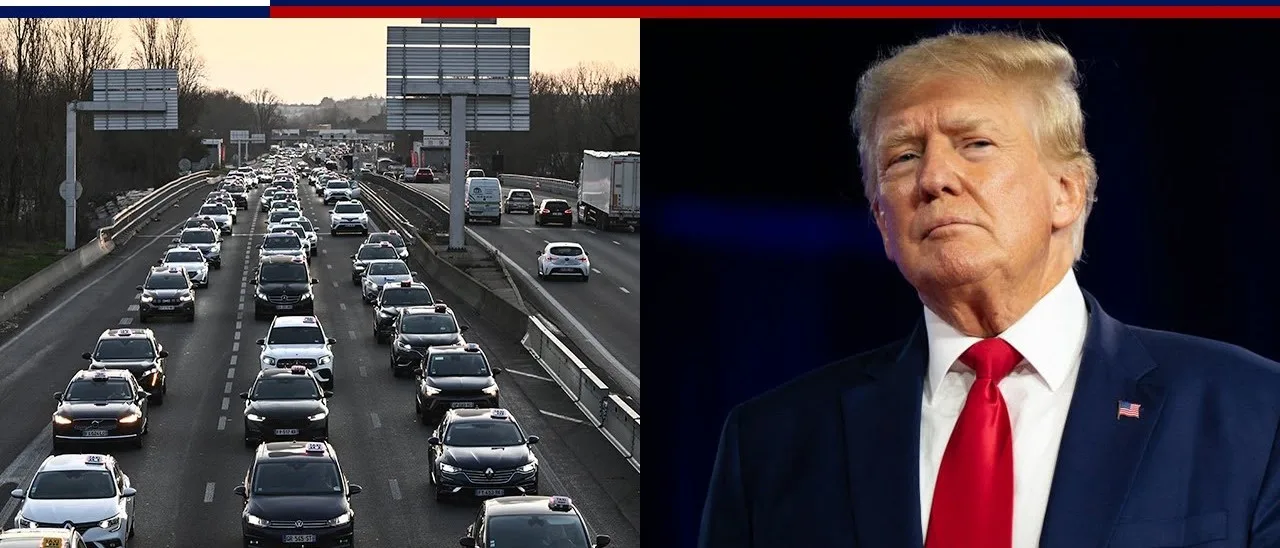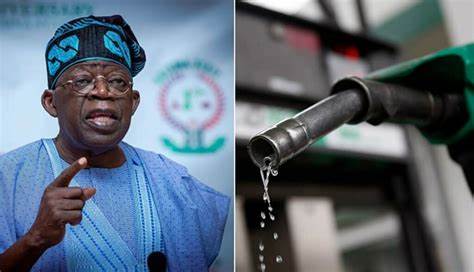World leaders have strongly criticised US President Donald Trump decision to impose a 25% tariff on imported vehicles and auto parts. The new tariffs, which will take effect on April 3, have triggered warnings of trade retaliation from key US partners such as the European Union, Japan, and Canada.
A New Trade Battle Begins
Trump announced the tariffs at the White House, stating that they would apply to all vehicles not manufactured in the United States. “What we’re going to be doing is a 25 percent tariff on all cars that are not made in the United States. If they’re made in the United States, it is absolutely no tariff,” he said.
Join our WhatsApp ChannelThe decision has already caused turmoil in financial markets, with car manufacturers such as Toyota, Hyundai, and Mercedes experiencing a drop in stock prices. The tariffs will also affect key automobile parts, making imported vehicles more expensive for American consumers.
READ ALSO: Trump Orders Proof of Citizenship For Voter Registration, Faces Backlash
Global Reactions to Trump’s Tariffs
Germany, one of the world’s largest car exporters, has called for a strong response from the European Union. French Finance Minister Eric Lombard condemned the move, saying, “The only solution for the European Union will be to raise tariffs on American products in response.”
Japan has also voiced concerns, stating that it will “consider all options” to protect its auto industry. Meanwhile, Canada’s Prime Minister Mark Carney has convened a meeting to discuss the country’s trade options.
Trump, however, remains firm on his stance. He warned that if the EU collaborates with Canada to retaliate, “large-scale tariffs, far larger than currently planned, will be placed on them both in order to protect the best friend that each of those two countries has ever had!”
How the Tariffs Affect the US Auto Industry
The new tariffs have also unsettled American manufacturers, who rely on imported auto parts. Tesla CEO Elon Musk admitted that his company would not be spared. “To be clear, this will affect the price of parts in Tesla cars that come from other countries. The cost impact is not trivial,” he wrote on X.
The Association of American Automakers has warned that the tariffs could lead to increased prices for consumers and hurt the competitiveness of the industry. The Center for Automotive Research previously estimated that similar tariffs on autos and metals could add thousands of dollars to car prices and impact jobs in the sector.
Trump’s Justification for the Tariffs
Trump’s trade adviser, Peter Navarro, defended the move, saying it was necessary to counter “foreign trade cheaters.” He argued that countries like Germany and Japan have long kept the highest-value auto manufacturing within their own borders while turning the US into an “assembly operation for foreign parts.”
Since beginning his second term in January, Trump has imposed fresh tariffs on imports from major trading partners, including Canada, Mexico, and China. The 25% duty on imported vehicles follows previous tariffs on steel and aluminium.
Impact on Key Trading Partners
The tariffs will put additional strain on relations with close allies such as Japan, South Korea, Canada, and Germany. Trade experts warn that the move could have long-term economic consequences. Wendy Cutler, a former US trade negotiator, said, “Imposing 25 percent tariffs on imported cars will have a devastating impact on many of our close trading partners.”
She noted that Washington has free trade agreements with some affected countries, raising questions about the value of US commitments under these deals.
What This Means for the Global Auto Market
About half of the cars sold in the United States are produced domestically, but a significant portion of these vehicles use imported parts. The tariffs are expected to disrupt supply chains, increase costs, and lead to possible job losses.
Under the US-Mexico-Canada Agreement (USMCA), vehicles produced in North America may qualify for lower tariffs based on their American content. However, non-USMCA vehicles and parts will face higher costs, affecting both automakers and consumers.
Looking Ahead
Trump has defended the tariffs as a way to raise government revenue and support American industries. However, experts fear that this move could lead to retaliatory tariffs and further uncertainty in global trade.
The tariffs are part of Trump’s broader economic policy, which includes sector-specific levies on pharmaceuticals, semiconductors, and lumber. His administration argues that these measures will strengthen US industries and reduce dependence on foreign imports.
The coming weeks will reveal how affected countries respond and whether the trade tensions escalate further. As nations weigh their options, the global auto industry is bracing for a significant shift.
Emmanuel Ochayi is a journalist. He is a graduate of the University of Lagos, School of first choice and the nations pride. Emmanuel is keen on exploring writing angles in different areas, including Business, climate change, politics, Education, and others.


















